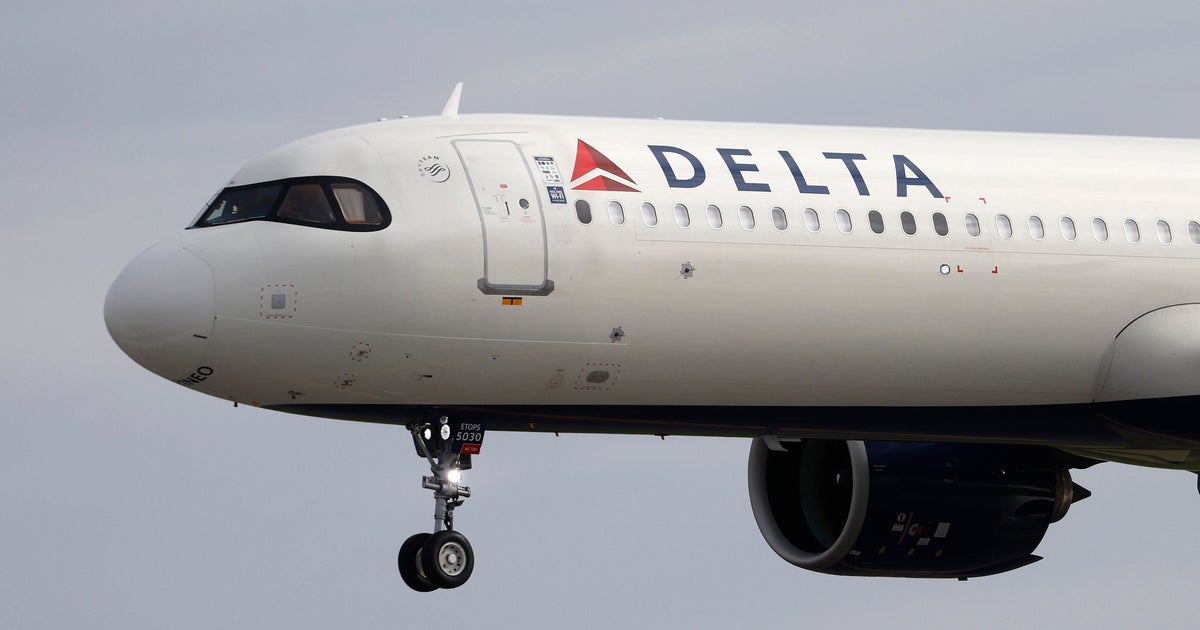Delta Air Lines said it is replacing auxiliary power units (APUs), a type of engine, on its Airbus aircraft to address toxic fume incidents that can harm airline crew and passengers.
The airline confirmed to CBS News Thursday that its replacing engines on more than 300 of its A320s in an initiative that began in 2022. The airline did not comment on the cost of the undertaking, which is more than 90% complete.
Delta is replacing engines that can cause toxic fumes to leak into the aircraft cabin’s air supply, posing health and safety risks to crew members and passengers.
Flight attendants have been calling attention to the issue for years, noting their own experiences with the dangerous toxins.
“I felt like I might die, and I thought, you know, I wonder what my mom is going to think — I went to work, and you know, I may not make it,” flight attendant Vanessa Woods told CBS News in 2016 of breathing in engine fumes on a flight she was crewing.
The leakage of fumes most commonly occurs on the Airbus A320 family of narrowbody jets, a recent Wall Street Journal investigation found.
Breathing in the toxic engine emissions can lead to general nervous system problems, Dr. Robert Harrison, an occupational medicine specialist at the University of California San Francisco who has treated more than 100 flight crew members for exposure to fumes, told CBS News.
Delta on Thursday said it is also exploring new synthetic turbine oils from different manufacturers for its engines.
Reached for comment on the issue, United CEO Scott Kirby recently told CBS News that it is a matter he has “personally been focused on for over a decade.”
United has a “proactive maintenance program” that tracks the plane engine’s oil consumption and oil pressure, and proactively replaces APU seals to prevent oil leaks and oil burns that would lead to fumes entering airplane cabins, Kirby said. The issue, he added, isn’t a concern on newer airplanes, like Boeing 787 Dreamliner, which have a different design.
Barry Biffle, CEO of Frontier Airlines, which operates an Airbus fleet, said that while the company is following the toxic fume issue, incidents occur very rarely.











